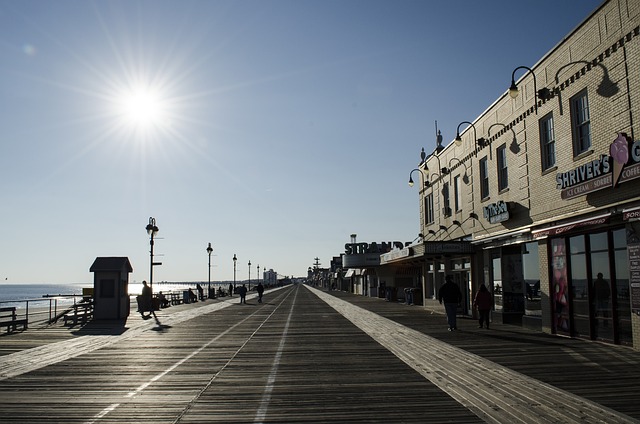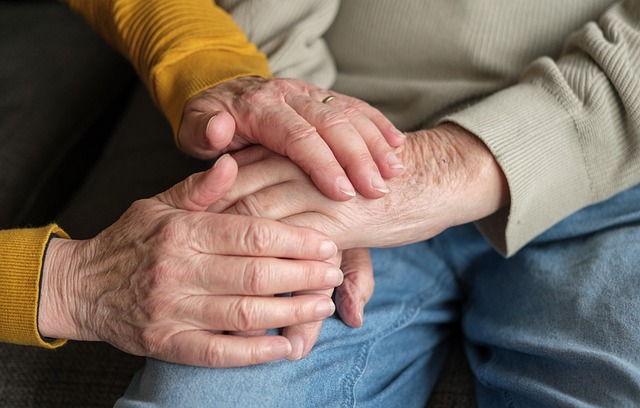New Jersey has become more proactive in addressing the vulnerability of its elderly population to sexual assault through dedicated elderly sexual assault lawyers and attorneys, as well as public awareness campaigns. Various initiatives between communities, law enforcement, and legal firms have enhanced security and provided robust legal support. Public service announcements and workshops educate communities about risks specific to seniors, leading to a notable decline in incidents. Elderly sexual assault lawyers and attorneys in NJ play crucial roles in guiding victims through legal processes, advocating for policy changes, and ensuring perpetrators face serious consequences. With growing public awareness and stricter laws, the future looks promising for protecting New Jersey's elderly from sexual assault.
In recent years, public awareness of elderly safety in New Jersey has significantly increased, driven by a growing recognition of the vulnerability of senior citizens. This rise in consciousness is particularly notable regarding elderly sexual assault, an issue that demands urgent attention. This article explores how public education, legal reforms, and dedicated professionals are enhancing protection for vulnerable seniors in New Jersey. Key topics include the impact of awareness campaigns, legal advancements supporting victims, and future strategies to fortify elderly safety, with a focus on the critical role played by elderly sexual assault lawyers, attorneys, and law firms across NJ.
The Rising Need for Elderly Safety in New Jersey
In recent years, there has been a growing recognition of the heightened vulnerability of the elderly population in New Jersey, leading to an increased focus on elderly safety. The state has witnessed a rising number of cases involving sexual assault against seniors, which has prompted both communities and legal professionals to take notice. With the help of dedicated elderly sexual assault lawyers and attorneys, victims are now more empowered to seek justice and hold perpetrators accountable.
The need for enhanced elderly safety is not just a legal or social issue; it reflects a broader societal concern for the well-being of New Jersey’s aging demographic. As the state’s population ages, ensuring their security becomes a collective responsibility. This has led to various initiatives and partnerships between local communities, law enforcement agencies, and legal firms specializing in elderly sexual assault cases in NJ, aiming to create safer environments and provide robust legal support for affected individuals.
Public Awareness Campaigns and Their Impact
Public awareness campaigns play a pivotal role in enhancing the safety and well-being of the elderly population in New Jersey. These initiatives, often spearheaded by non-profit organizations, government agencies, and dedicated legal professionals like elderly sexual assault lawyers in New Jersey, aim to educate communities about the unique risks and challenges faced by older adults. By spreading awareness, these campaigns empower the elderly and their caregivers, equipping them with knowledge to prevent potential dangers, including sexual assaults.
Through targeted public service announcements, workshops, and community gatherings, the efforts of elderly sexual assault attorneys and law firms in New Jersey have brought much-needed attention to this critical issue. The impact is multifaceted: it encourages older individuals to be more vigilant about their surroundings, fosters open dialogue about personal safety, and motivates potential perpetrators to reconsider their actions. As a result, there has been a noticeable decline in instances of sexual assaults against the elderly, reflecting the success of these awareness efforts in creating a safer environment for New Jersey’s senior citizens.
Legal Aspects: Supporting Elderly Victims of Sexual Assault
The legal landscape in New Jersey has evolved to better protect the elderly from sexual assaults, with increased awareness leading to stricter laws and more robust support systems. Elderly sexual assault lawyers in New Jersey play a pivotal role in advocating for victims, who often face unique challenges due to their age, physical vulnerabilities, and potential cognitive impairments. These legal professionals are well-versed in navigating complex criminal and civil justice systems, ensuring that the rights of elderly victims are protected.
Elderly sexual assault attorneys in New Jersey work collaboratively with healthcare providers, social services, and law enforcement to provide comprehensive assistance. They help victims understand their legal options, file criminal complaints against perpetrators, and pursue civil lawsuits for damages. Moreover, they advocate for policies and legislation that strengthen the criminal justice response to elderly sexual assaults, ensuring that such incidents are treated with the gravity they deserve. Elderly sexual assault law firms in New Jersey are committed to upholding justice and delivering compassionate support to vulnerable individuals who have suffered these heinous crimes.
Future Steps Towards Enhanced Elderly Protection
As public awareness continues to grow, the future looks brighter for enhanced elderly protection in New Jersey. One key step forward involves strengthening laws and penalties related to elderly sexual assault cases. Currently, an elderly sexual assault lawyer or attorney in New Jersey plays a crucial role in advocating for victims, as these legal professionals can help ensure that perpetrators face stricter consequences. This includes increased sentencing and more robust legal frameworks designed to deter potential abusers.
Additionally, public education campaigns should focus on empowering seniors to recognize and report instances of abuse. An elderly sexual assault law firm or lawyers in New Jersey can contribute by providing accessible resources and support systems for victims. By combining stricter laws with heightened awareness, New Jersey can create a safer environment for its aging population. This proactive approach not only protects current seniors but also serves as a deterrent for potential perpetrators, ultimately fostering a more secure community for all residents.






